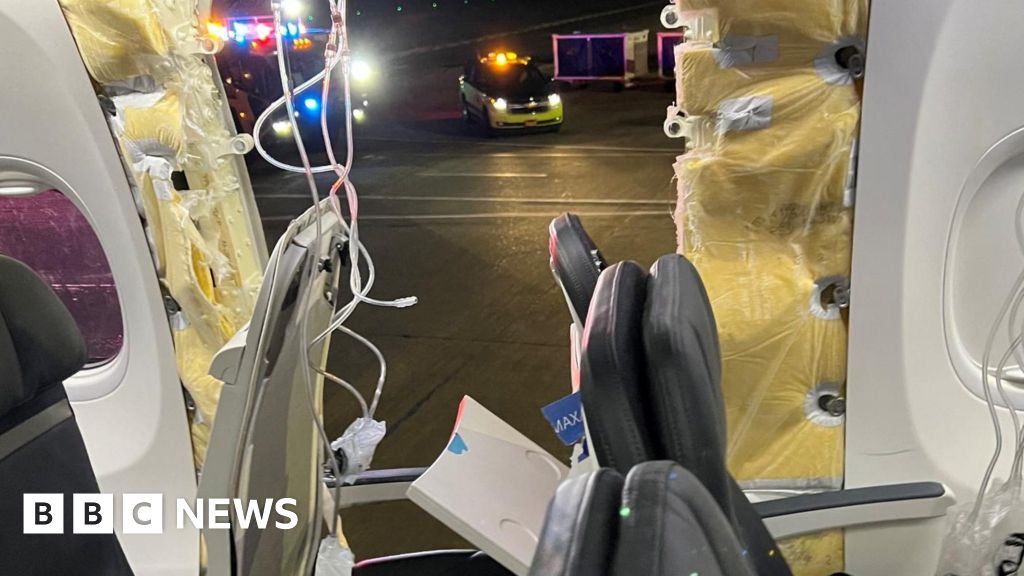Experts Have Been Predicting The Death Of Cable TV For Years. Is The End Now In Sight?

While it’s been evident for quite some that the future of cable TV rests on shaky ground, we are now seeing clear signs of the disruption the introduction of streaming and shifting viewing habits has had on the industry.
The challenges that lie ahead were laid bare in the recent standoff between Disney and Charter Communications that experts said risked unraveling the lucrative business of cable TV. The two sides eventually came to an agreement.
Now, another TV company, Warner Bros. Discovery, is once again testing the limits of the business with the launch of CNN Max, which airs several hours of programming that CNN carries on its linear channel, running the risk of violating the contracts the network holds with distributors.
This is yet another example of companies walking a fine line trying to maintain their lucrative cable contracts while also strongly positioning themselves for the future with streaming.
The Disney-Charter Deal
Earlier this year, Disney CEO Bob Iger and Charter Communications CEO Chris Winfrey, which owns Spectrum TV, got into a public dispute that left Charter customers unable to watch Disney channels, including ESPN, and the company threatened to exit the business altogether.
“We’ve always thought about the video business as being an asset to our broadband connectivity business,” Winfrey told a Goldman Sachs conference early last month. “And I think it’s on the verge of flipping, where it’s becoming a liability.”
One of the other issues raised by Winfrey was that while his company was charged big sums of money to carry Disney channels, Disney was putting some of its best content on its streaming platforms.
To the relief of many in the business, the two sides came to a deal that averted a crisis that would have had ripple effects on the rest of the industry.
“Our collective goal has always been to build an innovative model for the future,” Iger and Winfrey said in a joint statement at the time. “This deal recognizes both the continued value of linear television and the growing popularity of streaming services, while addressing the evolving needs of our consumers.”
That agreement is ushering in a new era for how the industry will operate going forward.
Alan Wolk, the co-founder and lead analyst at TVREV, a media analyst firm based in New York and Los Angeles, said the most significant part of the deal was Disney agreeing to offer Charter wholesale prices for access to its streaming services like Disney+.
“That’s where everything is heading,” Wolk told HuffPost.
Rich Greenfield, an analyst at LightShed Partners, echoed Wolk, telling The New York Times that TV companies would likely avoid tension with distributors by creating a bundle that includes their linear offerings and streaming.
“They’re all retreating to the simplicity and cost-effectiveness of the big bundle,” Greenfield said.
Up to now, though, consumers were essentially paying twice to access a company’s cable offering and streaming platforms.
“The media companies were blatantly double-dipping,” Craig Moffett, a MoffettNathanson cable industry analyst, told Reuters. “Going forward, you’re not going to be able to simultaneously charge the same customer twice for the same content.”
CNN Max Testing The Boundaries
The issue at heart here is that distributors no longer have the same incentive to offer their customers a cable TV bundle as they make most of their money through other services, like selling broadband internet, and therefore are pushing back against TV companies.
DirecTV on Tuesday warned Warner Bros. Discovery that it risks violating its contract with CNN with the launch of CNN Max, a streaming channel on the Max platform, which simulcasts several hours of programming from CNN’s cable channel. DirecTV pays millions in carriage fees to make CNN available to its customers.
At the moment, it remains unclear how this simmering dispute could escalate.
Wolk described the broad offering of Max as a “very smart move” on the part of Warner Bros. Discovery because it’s a sign of them recognizing the value to the consumer of a service offering news, sports and entertainment.
Warner Bros. Discovery CEO David Zaslav said so himself earlier this summer.
“News and sports are important,” Zaslav said. “They are differentiators. They are compelling. They make these platforms come alive.”
It’s worth noting that CNN previously dipped its foot into streaming with CNN+, a short-lived effort led by then-CEO Jeff Zucker to get the network into the space without violating its cable contracts. CNN+ was killed within weeks of launching following Warner Bros. Discovery’s acquisition of Warner Media, CNN’s former parent company.
TV Companies Are Treading A Fine Line
Nielsen data also showed that for the first time in July, broadcast and cable TV combined made up for less than 50% of total viewership, a record low.
Amid the inevitable reality of changing viewer habits and more Americans cutting the cord, TV companies must strike a delicate balance: develop their streaming platforms and garner more customers while maintaining the lucrative old cable TV contracts that have allowed them to fund their streaming ambitions.
For reference, Fox, the parent company of Fox News, made $1.77 billion from carriage and retransmission fees in the second quarter of 2023 alone.
“As we move to streaming, that’s going away because there’s nobody to pay them that,” Wolk said.
But the good news for those companies is it will take a while before the cable bundle disappears. Wolk points out that there will still be a 30-40% part of the older population who will hold on to their cable subscription.
This means that despite the incoming change, the TV industry will remain profitable. It just won’t make quite as much money as it did in the previous two decades.
Wolk told HuffPost it’s “literally the difference between insanely profitable and very profitable.”







